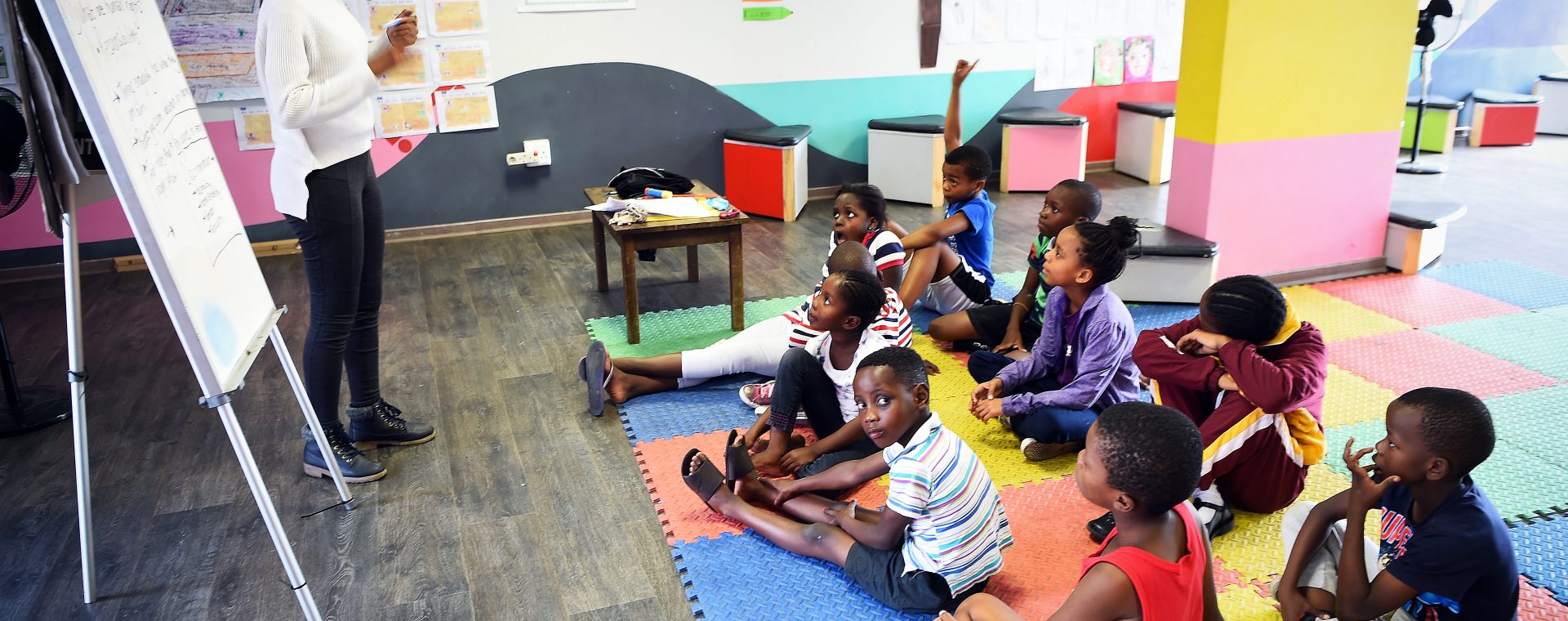
Over half the world’s displaced people are in Africa, and South Africa in particular has a high population of displaced people who flee neighboring countries due to poverty, conflict, and economic instability. Life in Johannesburg can bring many challenges and almost all of these are amplified for children affected by displacement. Building resilience is a key skill which we foster at the Skate School. Skateistan is an NGO which combines skateboarding with creative education to empower children. Skate Schools, such as the one in downtown Johannesburg, have programs free of charge to anyone between 5 and 17 years old. There is a specific focus on children who are marginalized and might otherwise be excluded from recreational and educational opportunities.
Skateboarding builds resilience because students fall again and again, and they have to get up to try again and improve. The students who are the best at skateboarding are invariably the ones who are most determined, and this sets a great example for beginners. The way the students learn to recover from falls and jump back up helps when they are faced with tough situations outside of the park. We cannot remove risk from their lives, but we can help them to identify risk, assess it, and navigate through their lives accordingly.
Safe spaces
Our first priority for all students is to create a safe space where they can express themselves. This is important for children who have been affected by displacement as they are often more vulnerable in terms of discrimination, poverty and instability. To create a truly safe space it is essential that we educate all students on the importance of life skills such as empathy, navigating risk, helping others, and making meaningful connections.
Breaking down social barriers
In Johannesburg, our students come from thirteen different language and ethnic groups, which makes it a diverse group. The educational sessions at the Skate School integrate intercultural communication so that our students feel comfortable sharing, learning and welcoming other cultures. Through curriculum topics like ‘People of the World’ we involve a mixture of cultures where children learn and celebrate each other’s backgrounds. We celebrate heritage week where students present their own culture and share stories about where they come from and the challenges they face. The students love having new faces at the school because they get to learn new things and grow their little community within the walls of Skateistan. They carry these experiences out into the world and teach their friends and families about the value of inclusion.
Processing difficult experiences
Our educational programs also explore issues such as human rights, ideal countries, conflict and peace. We encourage children to express their own ideas and experiences about these issues. For children affected by displacement, this can help them to process what has happened to them, as well as to articulate the challenges of their new environment. For others, learning about their experience helps them to empathize and to overcome prejudice which is prevalent in other areas of society. By building issues such as displacement into our creative education programs, it’s possible to turn something challenging into something worth celebrating.
Including children who have been affected by displacement into our programs is something which enriches the experience for all Skateistan students. Culture, diversity and resilience are things which our students value highly in themselves and in each other. Skateboarding acts as a great leveler – the challenge of skateboarding helps children see each other as equals.
Changing one life at a time
Nthabiseng* is a nine-year-old student whose mother was forced to leave Zimbabwe due to terrible living conditions, political instability and an economy that was failing. Nthabiseng didn’t know anyone in Johannesburg and used to sit at home and watch TV.
She started attending Skateistan the moment we opened the space, and her behavior started changing dramatically when she attended the programs. Her confidence grew and with that she was able to make friends and connect with her community. Nthabiseng explored how she could contribute to her community and create a brighter future for herself. Now she often volunteers her time to help other students that are new, and she says that skateboarding has taught her to never give up, because “when you fall you need to get up and try again.” She is a confident skater, an eager participant in her classes, and focused on self-improvement. She has a wide circle of friends and knows that there are adults around her who will support her as she grows up.
Students like Nthabiseng not only have the opportunity to heal and grow in the Skatistan programs, but they also share their knowledge with their wider community. We hope that this effect grows with every new student that joins the Skate School.
*Name changed in accordance with Skateistan’s Child Protection Policy.


